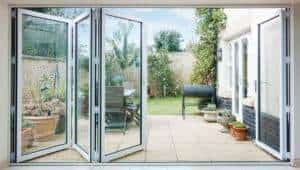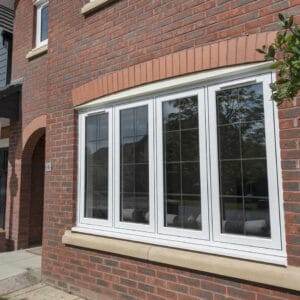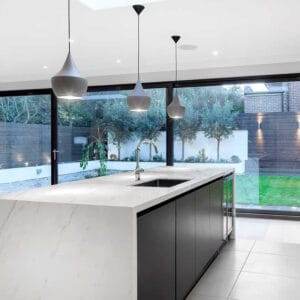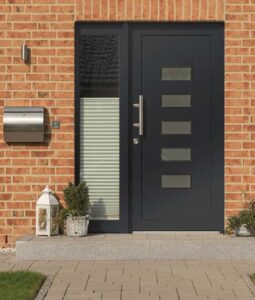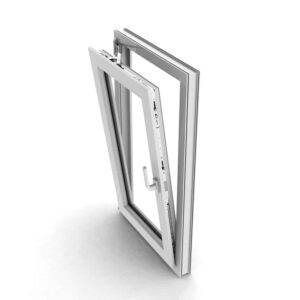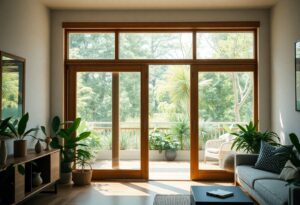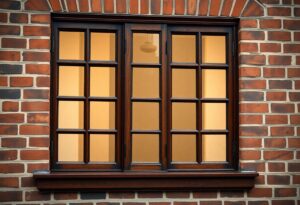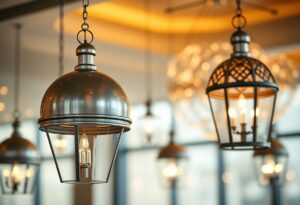You may be considering replacing or installing uPVC French doors in your home, and understanding glazing options is key to making an informed decision. In this post, we will explore double, triple, and Low-E glass alternatives, highlighting how each option can enhance energy efficiency, safety, and sound insulation. By familiarising yourself with these choices, you can select the ideal glazing that caters to your needs while ensuring long-term benefits for your home.
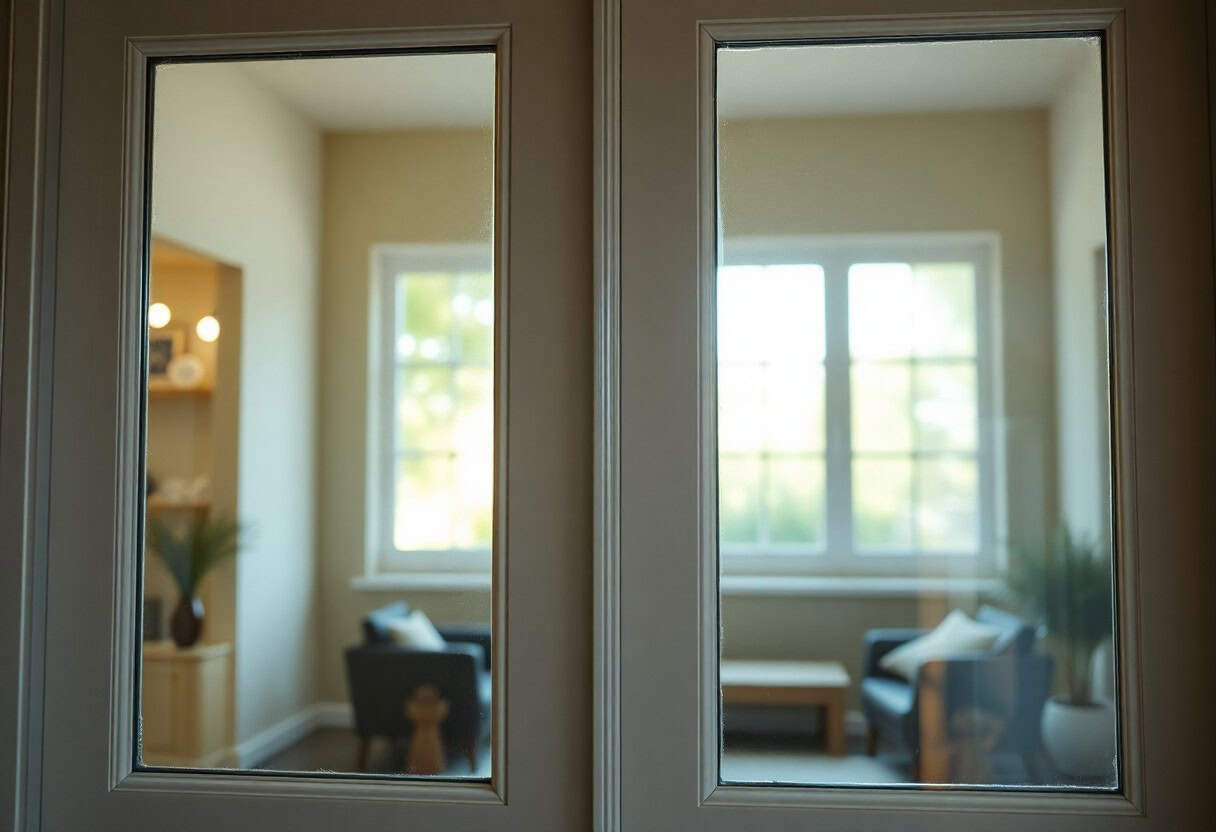
Understanding Glazing Options
A variety of glazing options exists for uPVC French doors, each designed to enhance energy efficiency, security, and aesthetics. It’s crucial to understand these choices to make an informed decision that best suits your needs. From double glazing to specialised coatings, the right glazing can significantly improve your home’s insulation and comfort.
Double Glazing
Between the two panes of glass, double glazing creates a thermal barrier that helps to reduce heat loss and noise pollution. This option is popular for its effectiveness in improving energy efficiency while providing a versatile look for your French doors.
Triple Glazing
Glazing with three panes of glass offers enhanced insulation compared to its double-glazed counterparts. This configuration significantly minimises heat transfer, making it ideal for those seeking improved energy efficiency. You can enjoy quieter interiors while protecting your home from external weather elements.
A triple glazing setup not only delivers superior thermal performance but also contributes to reduced energy bills over time. By trapping air between each pane, it effectively increases sound insulation and creates a more comfortable living environment. However, it’s important to consider that this option can be heavier and more expensive than double glazing, which may influence your choice based on structural requirements and budget.
Low-E Glass Explained
While considering glazing options for your uPVC French doors, Low-E glass emerges as a forward-thinking choice. Designed with a special coating, it reflects heat while allowing visible light to pass through, striking an ideal balance between natural illumination and energy efficiency.
What is Low-E Glass?
Above all, Low-E glass, or low emissivity glass, features a microscopically thin metallic coating. This coating minimises the amount of infrared and ultraviolet light that enters your home, enhancing thermal performance while still letting in ample daylight.
Benefits of Low-E Glass
Around your living space, opting for Low-E glass can transform your comfort and energy consumption. It not only helps maintain a consistent indoor temperature, but also protects your furnishings from fading by blocking harmful UV rays.
This energy-efficient option significantly reduces your heating and cooling bills, ultimately promoting a sustainable lifestyle. Moreover, by limiting heat loss in winter and reducing heat gain in summer, it creates an overall comfy environment. You’ll also appreciate the prolonged lifespan of your interior furnishings, as Low-E glass effectively filters out damaging light that could lead to fading. By choosing Low-E glass, you enhance your home’s value and appeal, making it an intelligent investment for the future.
Comparing Glazing Options
Any homeowner considering uPVC French doors should evaluate the different glazing options available. Each type of glass offers distinct benefits and can significantly impact your home’s comfort, energy efficiency, and overall costs. Below is a comparison that highlights these key aspects:
| Glazing Type | Key Benefits |
|---|---|
| Double Glazing | Good insulation and noise reduction |
| Triple Glazing | Superior thermal efficiency |
| Low-E Glass | Reflects heat and reduces energy bills |
Energy Efficiency
Below, you will find information on how each glazing option affects energy efficiency. Double glazing is effective, but triple glazing takes it a step further by providing even greater insulation. Low-E glass is designed to minimise energy loss through reflection, helping to maintain a comfortable interior temperature.
Cost Considerations
At the same time, you need to factor in your budget when selecting glazing. While double glazing is typically the most affordable option, triple glazing and Low-E glass may come with a higher initial investment. However, these options can lead to significant long-term savings through lower energy bills.
Glazing options vary in price and performance, with triple glazing being the most expensive but offering enhanced insulation. While you may pay more upfront, the potential for energy savings makes it a wise choice for many homeowners. Double glazing strikes a balance between price and energy efficiency, while Low-E glass can offer you significant savings on heating costs over time. Consider your budget and long-term savings to make an informed decision that best suits your needs.
The Role of uPVC in French Doors
Your choice of uPVC for French doors significantly impacts their functionality and aesthetic appeal. This versatile material offers excellent thermal insulation, helping to keep your home warm and energy-efficient. Additionally, uPVC’s resistance to weathering ensures that your doors maintain their appearance and integrity over time, even in harsh conditions.
Advantages of uPVC
Around the home, uPVC has become a popular choice for French doors due to its numerous benefits. It offers exceptional energy efficiency, sound insulation, and low maintenance, while also coming in a variety of styles and finishes to complement your home’s architecture.
Durability and Maintenance
Before deciding on your French doors, consider the durability and maintenance aspects of uPVC. This material is resilient against rust, rot, and corrosion, which can plague wooden doors. Maintenance is minimal, requiring only occasional cleaning with soapy water, meaning your doors will preserve their appearance and functionality for years.
Role of uPVC in providing durability and low maintenance cannot be overstated. Unlike traditional materials, uPVC does not warp or crack, making it a safe choice for protecting your home. Furthermore, its weather-resistant properties shield against harsh elements, reducing the risk of damage commonly associated with wood or metal doors. This means your investment lasts longer, while the low upkeep allows you more time to enjoy your beautiful French doors without the worry of frequent repairs or replacements.

Choosing the Right Glazing for Your Needs
Despite the myriad of glazing options available, selecting the right type for your uPVC French doors doesn’t have to be overwhelming. You need to assess your specific requirements, considering factors such as energy efficiency, noise reduction, and cost. Each type of glazing offers distinct benefits, so identifying what matters most to you will streamline your decision-making process.
Climate Considerations
Choosing the appropriate glazing solution significantly impacts your home’s energy efficiency, especially in varying climates. If you live in an area with extreme temperatures, opting for triple glazing may enhance insulation and reduce energy bills. In contrast, moderate climates may find double glazing perfectly adequate. Always evaluate how your local weather patterns might affect your heating and cooling needs.
Aesthetic Preferences
Across different homes, aesthetic preferences can vary significantly, meaning your choice of glazing should also complement your property’s style. The appearance of the glass can influence not only your home’s overall look but also its value and kerb appeal.
In fact, the characteristics of the glazing you choose can enhance your home’s architectural style while still meeting performance standards. Clear glass is timeless and allows maximum light; however, frosted or decorative options might suit your design preferences better if privacy is a concern. Consider how the style you select will harmonise with your exterior and interior decor—ultimately, the right choice reflects your personal taste while maintaining functional advantages.
Installation and Maintenance Tips
After you’ve selected the right glazing options for your uPVC French doors, it’s important to ensure proper installation and maintenance. Follow these tips to keep your doors functioning optimally:
- Always use a professional for installation to guarantee proper fitting.
- Check for any gaps or drafts once installed.
- Regularly inspect seals and frames for wear.
- Clean the glass and uPVC frames regularly to maintain appearance.
- Lubricate hinges and locks to ensure smooth operation.
Any issues should be addressed immediately to avoid further complications.
Professional Installation
The importance of professional installation cannot be overstated. Hiring a qualified installer ensures that your uPVC French doors are fitted correctly, providing the necessary weather resistance and energy efficiency. An expert can also help avoid potential issues, such as air leaks or misalignment, saving you time and money in the long run.
Routine Maintenance
Maintenance is key to prolonging the lifespan of your uPVC French doors. Regular cleaning and inspections will help keep them looking good and functioning well.
Installation involves ensuring that the frames are properly sealed and that the glass is secure and intact. During your routine maintenance, check for any cracks or chips in the glass as well as the integrity of the uPVC frame. Keeping the hinges lubricated will prevent rust and ensure ease of operation. By taking these steps, you can extend the life of your investment and enhance your home’s safety and aesthetics.
Summing up
Drawing together the highlights of glazing options for uPVC French doors, you can see that each type—double, triple, and Low-E glass—offers distinct advantages tailored to your needs. By understanding the benefits of energy efficiency, noise reduction, and enhanced insulation, you can make an informed decision to improve your home’s comfort and aesthetics. As you evaluate your options, consider how these glazing choices align with your preferences for style and functionality, ensuring you achieve the perfect balance for your living space.
FAQ
Q: What are the differences between double and triple glazing in uPVC French doors?
A: Double glazing consists of two panes of glass sealed together, creating a layer of air or gas between them, which acts as insulation. Triple glazing, on the other hand, has three panes of glass, providing an additional layer of insulation. This can lead to improved energy efficiency and noise reduction. However, triple glazing can be heavier and may require sturdier frames compared to double glazing.
Q: How does Low-E glass enhance the energy efficiency of uPVC French doors?
A: Low-E glass, or low emissivity glass, has a special coating that reflects heat back into the room while allowing light to pass through. This helps to keep the interior of your home warmer in the winter and cooler in the summer, ultimately reducing heating and cooling costs. When used in uPVC French doors, Low-E glass can significantly enhance the energy efficiency of your home.
Q: Are there any particular advantages of choosing triple glazing for uPVC French doors?
A: Yes, selecting triple glazing can offer several advantages. It provides superior thermal performance, which can lead to lower energy bills and increased comfort in your home. Additionally, triple glazing can offer enhanced sound insulation, making it particularly beneficial in noisy areas. The increased thickness also adds a level of security, as it would be more difficult to break compared to double glazing.
Q: Can Low-E glass be used with both double and triple glazing options?
A: Absolutely, Low-E glass can be applied to both double and triple glazed units. When used in conjunction with either type, it can further enhance the thermal performance of the doors. This combination maximises energy efficiency, providing benefits regardless of whether you choose double or triple glazing.
Q: What should I consider when choosing glazing options for my uPVC French doors?
A: When opting for glazing options, consider factors such as your local climate, the level of noise you wish to mitigate, and your budget. Double glazing may suffice for milder climates and cost-sensitive projects, while triple glazing could be more advantageous in extreme weather conditions or for enhanced soundproofing. Low-E glass is also a worthwhile option if you wish to improve energy efficiency and reduce heating costs. Always consult with a professional to ensure you select the best option for your specific needs.

